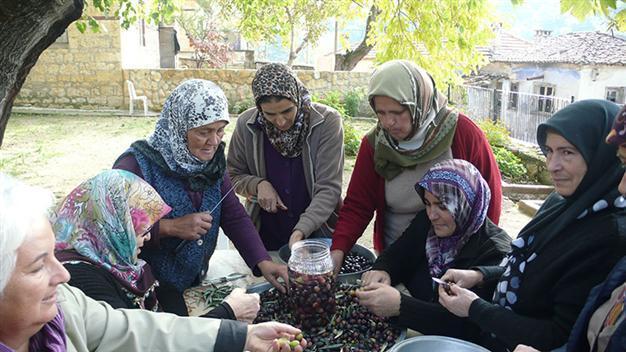Turkey’s changemakers: A changemaker village at the sides of Kaz Mountains
 Sabancı Foundation Turkey’s Changemakers Program is continuing in its 6th season to share the unique stories of extraordinary people who contribute to social development across the country. The third Changemaker of the 6th season is the Nusratlı Village Culture Tourism and Solidarity Association (NusratDer), based in the northeastern province of Çanakkale.
Sabancı Foundation Turkey’s Changemakers Program is continuing in its 6th season to share the unique stories of extraordinary people who contribute to social development across the country. The third Changemaker of the 6th season is the Nusratlı Village Culture Tourism and Solidarity Association (NusratDer), based in the northeastern province of Çanakkale. Süheyla Dogan, a retired civil engineer, moved to the Kaz Mountains with her family for a tranquil life after retiring; but she didn’t rest, establishing the association in 2005 with the support of villagers from Nusratlı.
NusratDer is managed by is seven people - three women and four men, who came together to contribute to the development of Nusratlı and revive ecological tourism and agriculture activities. The association has attracted 100 members and is the first such village group in the region.
The association started by organizing computer courses for children and women, as well as trips for people who could not go outside the village. The work of the association has since expanded over time, and the Nusratlı Village Development Project was kicked off for the touristic and economic development of the village under the leadership of the Ayvacık Vocational School. The project was supported by the South Marmara Development Agency, where the old village school was restored into a training room, kitchen and natural products sales center. The variety of the products sold in the sales center has expanded, and 12 women work to sell olives, olive oil, medical and aromatic herbs, tomato paste, homemade pasta, jams and handicraft products. Twenty-five women have attended a training course on guest house management and three families have transformed their homes into guest houses, which contributed to these families as well as to the village economy.
Under the leadership of Süheyla Dogan, the Nusratlı Village Solidarity Association has organized many activities for all villagers working as a team. It has empowered women as individuals in their homes and within society, economically as well as socially, and has inspired many villages in the region.












